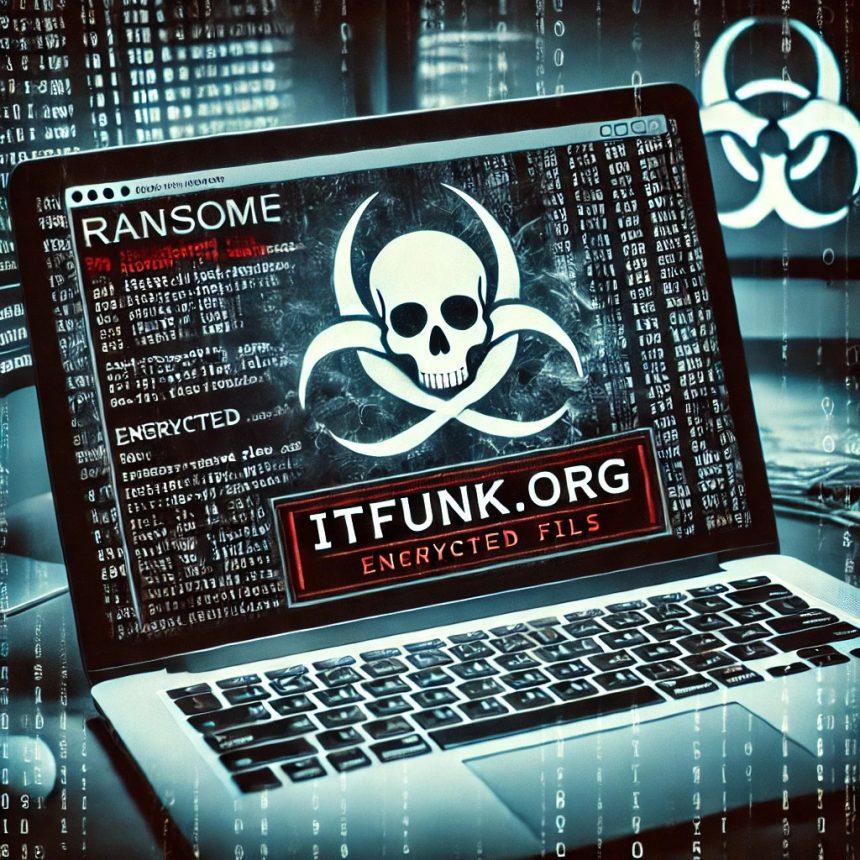The Rugi virus is a dangerous ransomware strain from the STOP/DJVU malware family. It targets Windows users, encrypting important files and demanding a ransom for their recovery. Files affected by the Rugi virus receive the “.rugi” extension, rendering them inaccessible. A ransom note titled _readme.txt is left behind, instructing victims on how to pay for decryption.
If your files have been locked with the “.rugi” extension, this article will guide you through the removal process, possible decryption options, and steps to prevent future infections.
Rugi Virus – Threat Summary Table
| Attribute | Details |
|---|---|
| Threat Name | Rugi Virus Ransomware |
| File Extension | .rugi |
| Threat Type | Ransomware, Cryptovirus |
| Ransom Note File | _readme.txt |
| Ransom Demand | Payment required for a decryption key |
| Detection Names | UDS:Trojan.Win32.Chapak.gen, Ransom:Win32/StopCrypt.KM!MTB, Win32:PWSX-gen [Trj], A Variant Of Win32/GenKryptik.FHJB |
| Symptoms of Infection | Files encrypted and appended with .rugi, ransom note appears, system slowdown, unauthorized system modifications |
| Damage | Data encryption, file inaccessibility, registry modification, potential additional malware infections |
| Distribution Methods | Malicious email attachments, spam emails, fake software downloads, cracked software, infected torrents |
| Danger Level | High – Files may be lost permanently |

Remove
Rugi Ransomware
With SpyHunter
Download SpyHunter now, and scan your computer for this and other cybersecurity threats for free!
What Is Ransomware?
Ransomware is a malicious software that encrypts files on a victim’s system, making them inaccessible until a ransom is paid. It spreads via email attachments, fake updates, and software vulnerabilities. Once activated, it locks data and demands payment in cryptocurrency, often threatening permanent data loss if the ransom is not met.
How Does the Rugi Virus Infect Systems?
The Rugi virus infiltrates devices through various attack vectors, such as:
- Spam Emails & Malicious Attachments – Phishing emails contain infected attachments (Word docs, PDFs, ZIP files) that install the ransomware.
- Fake Software Updates – Malicious websites prompt users to install software updates, which are actually ransomware payloads.
- Cracked Software & Torrents – Downloading pirated software or illegal torrents exposes users to ransomware infections.
- Compromised Websites – Some sites host drive-by downloads that automatically install malware when visited.
Once inside the system, the Rugi virus executes its payload, encrypts files, and demands a ransom for decryption.
What Does the Rugi Virus Do?
After infecting a system, the Rugi virus follows these steps:
- Encrypts Files – All documents, images, videos, and archives are locked with AES encryption and renamed with the “.rugi” extension.
- Drops a Ransom Note – A text file called _readme.txt appears, instructing victims on how to pay the ransom.
- Modifies System Settings – The ransomware adds malicious registry entries, preventing users from manually restoring files.
- Deletes Shadow Copies – This action blocks built-in recovery options, making file restoration more difficult.
- Installs Additional Malware – Some ransomware strains download other malware, such as password stealers or keyloggers.
What Are .rugi Files?
Files with the “.rugi” extension have been encrypted using AES and RSA algorithms. These files include:
- Documents: .docx, .pdf, .txt, .xlsx
- Images: .jpg, .png, .gif
- Videos: .mp4, .avi, .mov
- Audio Files: .mp3, .wav, .aac
- Archives: .zip, .rar, .7z
Once encrypted, manual decryption is nearly impossible without the attacker’s private key.
Rugi Virus Ransom Note (_readme.txt)
ALL YOUR FILES ARE ENCRYPTED -
databases and other important are encrypted with strong
The only method of recovering files is to purchase decrypt tool and unique key for you.
This software will decrypt all your encrypted files.
What guarantees do we give to you?
You can send one of your encrypted file from your PC and we decrypt it for free. But we can decrypt only 1 file for free. File must not contain valuable information
Don't try to use third-party decrypt tools because it will destroy your files.
Discount 50% available if you contact us first 72 hours.
To get this software you need write on our e-mail:
helpmanager@mail.ch
Reserve e-mail address to contact us:
helpdatarestore@firemail.cc
Your personal ID:
[REDACTED 43 alphanumeric chars]How to Remove the Rugi Virus from Windows

Remove
Rugi Ransomware
With SpyHunter
Download SpyHunter now, and scan your computer for this and other cybersecurity threats for free!
To remove the Rugi ransomware, follow these steps:
Step 1: Enter Safe Mode
- Restart your computer and press F8 (or Shift + Restart).
- Choose Safe Mode with Networking.
Step 2: Scan with Anti-Malware Software
- Use SpyHunter to detect and remove the ransomware.
- Download SpyHunter, install it, and run a full system scan.
- Remove all detected threats.
Step 3: Delete Malicious Files
Manually delete the following directories:
%Local%%Temp%%Windows%%SystemDrive%%LocalLow%%AppData%%System%%system32%
Step 4: Restore Windows Registry
- Open Run (Win + R) → type regedit → Enter.
- Navigate to:
HKEY_LOCAL_MACHINE\Software\Microsoft\Windows\CurrentVersion\Run - Look for suspicious entries and delete them.
How to Decrypt .rugi Files
- Try STOP/Djvu Decryptor – Available on the Emsisoft website.
- Use File Recovery Software – Recuva, EaseUS Data Recovery, or Stellar Data Recovery.
- Restore from Backup – If backups exist, use Windows File History or System Restore.
Preventive Measures Against Rugi Virus
- Use Strong Antivirus Software – Keep SpyHunter running in real-time protection mode.
- Enable Windows Defender – Ensure Windows Defender and Firewall are active.
- Avoid Suspicious Emails – Don’t open unknown email attachments.
- Download Software from Trusted Sources – Avoid pirated software and cracked applications.
- Enable Automatic Backups – Use cloud storage and external drives to protect important files.
- Keep Windows Updated – Install latest security patches.
Final Thoughts
The Rugi virus ransomware is a serious threat that encrypts personal files and demands a ransom for decryption. While decryption is difficult, you can remove the virus using SpyHunter and try available recovery methods. Avoid paying the ransom, as it encourages cybercriminals.
For maximum security, keep your system protected with anti-malware tools and follow best cybersecurity practices.
Remove annoying malware threats like this one in seconds!
Scan Your Computer for Free with SpyHunter
Download SpyHunter now, and scan your computer for this and other cybersecurity threats for free!





